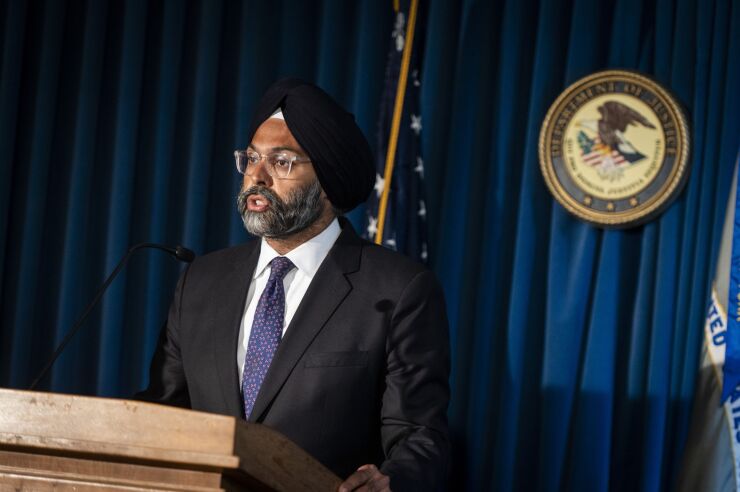Wall Street’s regulator is hinting that it will bring more enforcement cases against wealth managers over their compliance with Regulation Best Interest, the two-year-old rule that sets minimum standards for client care in financial advice.
A month after
The hearing was held by a subcommittee of the House Financial Services Committee, whose chairwoman, Maxine Waters, mentioned “the lack of clear fiduciary standards” for brokerages that makes Reg BI a weaker law when compared to advisory firms that must place clients’ interest before their own. Citing the case last month, Waters, a California Democrat, said that she “can’t imagine only one firm or a handful of brokers” is violating the rule and asked “how, if at all,” brokerages have changed their practices under it.
Investor advocates are calling for more enforcement of the rule, while wealth managers
“Is it having its intended effect? Is it changing behavior? Are broker-dealers addressing conflicts of interest?” Grewal asked. “It remains to be seen. But it’s my hope, with enforcement actions, with education and with compliance, that it’s having its desired effect in the market.”
Supporters of tougher rules for brokerages view the SEC’s Reg BI enforcement record as disappointing, according to Phyllis Borzi, the former head of the Labor Department’s Employee Benefits Security Administration. Borzi led the creation of the Obama Administration’s Fiduciary Rule, which gave brokerage clients nearly all of the same protections as advisory customers before an appeals court
“The rule itself has not been as strong as it could or should have been,” Borzi said. “It seems like there's broad noncompliance with Reg BI. I’m not sure whether one case in two years is enough of a deterrence to get people to comply.”
The comments of Republican lawmakers at the hearing show the political difficulty surrounding SEC efforts to crackdown on brokers and advisors who cheat or mislead investors. Echoing wealth management executives
Rep. Tom Emmer, a Minnesota Republican, zeroed in on cryptocurrency enforcement as another area where the Wall Street regulator has failed to clearly state the rules. Emmer agreed with Grewal’s opinion that the public won’t invest unless they think the system is fair. But he added that the Biden Administration has blamed the erosion of faith “almost squarely on the shoulders of industry participants and companies.”
“Chair Gensler’s political regime, carried out by its Division of Enforcement, has been characterized by a focus on using enforcement to expand SEC jurisdiction at the expense of public resources, public investment in our country and public trust in our markets,” Emmer said. “It seems clear to everyone, except maybe those at the Commission, that the SEC is not regulating in good faith.”
Grewal’s testimony
Under questions from Democratic Illinois Rep. Sean Casten about the June 2020 suicide of a college student named
Casten said he has no idea how “you could honestly say you were looking out for the best interests of your customers if you are using gamification of stocks.” He noted that Reg BI went into effect two years ago and that “companies like Robinhood continue to make a lot of money.”
Grewal declined to discuss any “specific entities or individuals.”
Wall Street’s regulator is “particularly” keeping Reg BI in mind as it weighs how digital engagement “intersects and could constitute a recommendation,” Grewal said. “And then on the manipulation side, how it could be used in furtherance of manipulative conduct. It could have horrific consequences as well, as we've seen in the case that you highlighted.”








